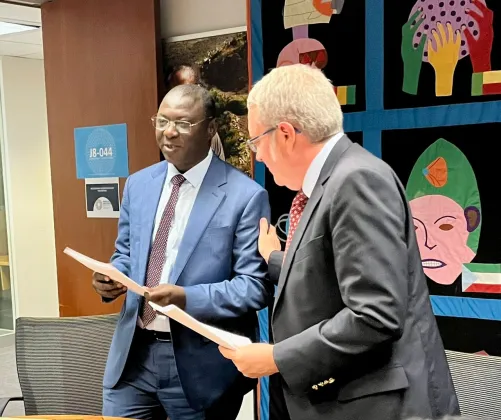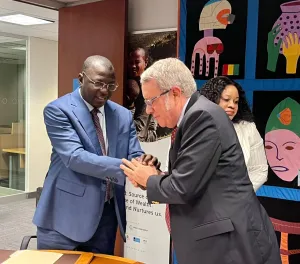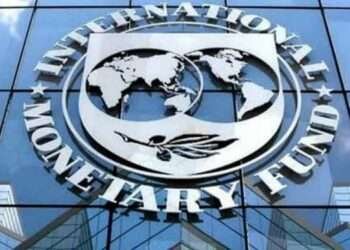Ghana has signed a $260 million financial package with the World Bank to tackle pressing challenges within its energy sector.
The deal, comprising a $250 million credit and a $10 million grant, was signed in Washington, D.C., and marks Ghana’s first energy sector partnership with the World Bank in over two decades. Dr. Mohammed Amin Adam, Ghana’s Minister for Finance, hailed the agreement as a transformative milestone toward a more sustainable and efficient energy landscape in Ghana.
The newly signed agreement establishes the Energy Sector Recovery Program for Results (P4R), an ambitious initiative that aims to enhance the financial stability of Ghana’s electricity distribution sector and expand access to clean cooking solutions.
Dr. Adam detailed that the P4R program is intended to mitigate high distribution losses and improve revenue collection—two long-standing issues that have significantly burdened Ghana’s economy.
These inefficiencies have cost the country approximately 2% of its GDP annually. Energy shortfalls, in particular, have caused additional losses amounting to roughly $1.2 billion this year alone, underscoring the need for urgent reforms.
“This situation is unsustainable and needs to be urgently addressed,” Dr. Adam stated, emphasizing that achieving a stable and reliable energy sector is critical to Ghana’s economic growth.
The financial package is structured to focus on measures that will improve revenue collection and operational efficiency, including investments in prepaid metering systems and advanced commercial management solutions for distribution utilities.
These enhancements, according to Dr. Adam, will reduce operational costs, fortify infrastructure, and provide a consistent energy supply, which will, in turn, fuel broader economic growth.
Economic Impact and Future Growth

The reforms introduced through the P4R program align with Ghana’s broader development objectives, which aim to attract investment, enhance productivity, and create a more resilient energy infrastructure.
Dr. Adam cited research from the Institute of Statistical, Social and Economic Research (ISSER), which estimates that Ghana incurs losses of between $320 million and $924 million annually due to energy crises.
These financial losses, according to Dr. Adam, underscore the urgency of addressing systemic issues in the energy sector.
“The potential economic benefits are enormous. With a financially viable electricity distribution sector, we can exceed medium-term growth targets.”
Dr. Mohammed Amin Adam, Ghana’s Minister for Finance
The P4R’s focus on creating a stable energy sector aligns with Ghana’s long-term vision of achieving a self-sustaining energy system that can support industrialization and economic expansion.
The program’s broader economic impact is expected to resonate beyond the energy sector. By stabilizing energy supply and reducing costs associated with distribution inefficiencies, the P4R will enable businesses to operate more reliably and reduce costs for consumers.
A significant component of the P4R initiative is expanding access to clean cooking solutions, with a focus on providing liquefied petroleum gas (LPG) to households, schools, and businesses.
This clean cooking initiative is expected to promote environmental sustainability by reducing the use of wood and charcoal, which are associated with deforestation and health risks due to indoor air pollution.
The inclusion of the clean cooking initiative within the P4R program reflects a holistic approach to energy reform, addressing both electricity distribution challenges and promoting environmentally sustainable practices.
World Bank Support and Strategic Goals

Robert Taliercio, Country Director for the World Bank, highlighted the P4R’s strategic goals, which are embedded within the World Bank’s Development Policy Financing (DPF) series.
After receiving board approval in June and securing Ghanaian parliamentary approval in September, the agreement was ready for signing. The DPF series for Ghana includes an energy pillar that emphasizes accountability, transparency, and financial viability within the energy sector.
Taliercio outlined the broader objectives of the P4R program, stating, “The P4R focuses on improvements in energy sector institutional capacity and accountability, introducing transparency, certainty, and predictability in the sector’s financial flows.”
In alignment with these goals, the program will deploy between 600,000 and 1 million smart prepaid meters, a critical measure to enhance revenue collection and transparency within the electricity distribution network.
This transformative agreement not only signifies the beginning of a new chapter in Ghana’s energy sector but also positions the country to address long-standing inefficiencies and create a future where energy supports, rather than constrains, Ghana’s development aspirations.
READ ALSO: Egypt Proposes Preliminary Step For Complete Ceasefire




















